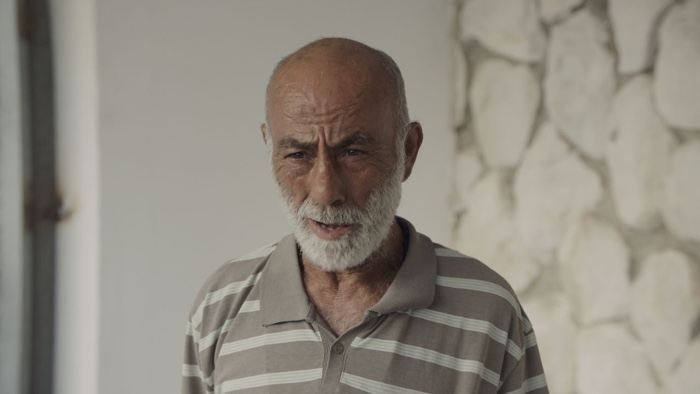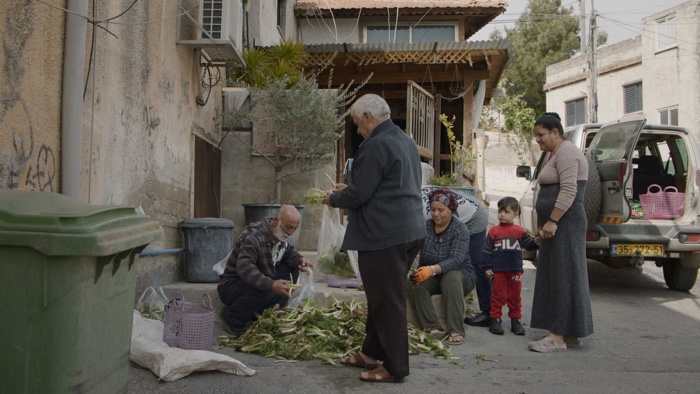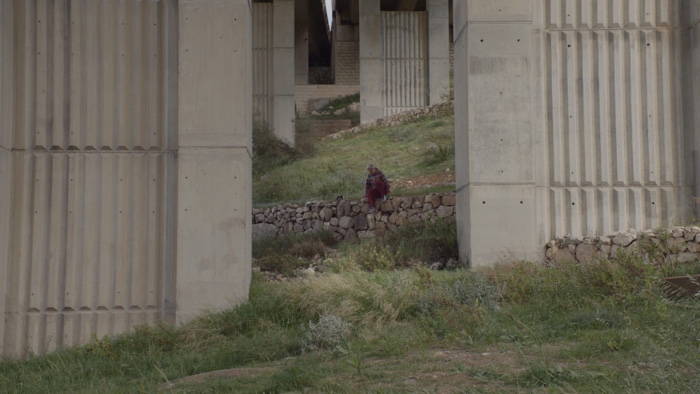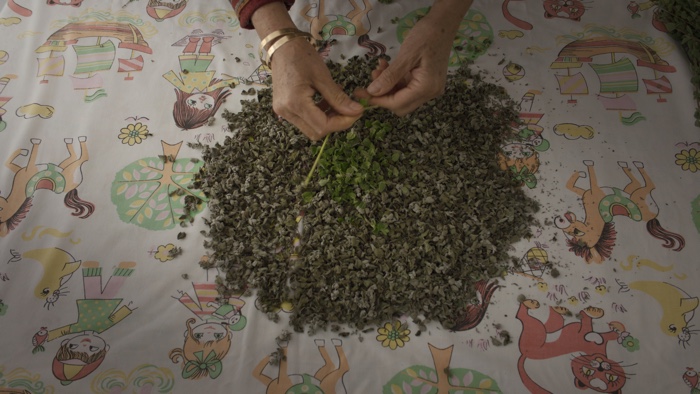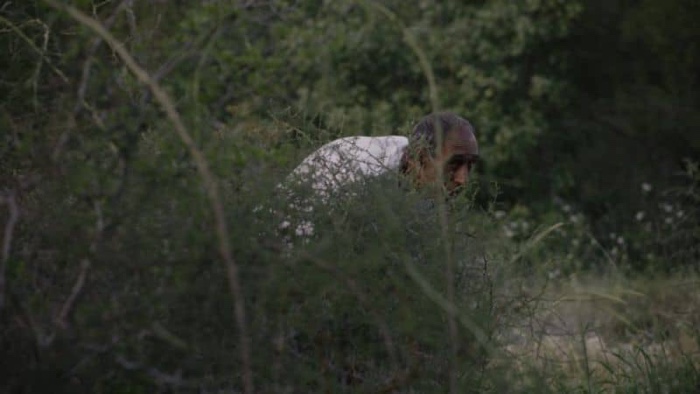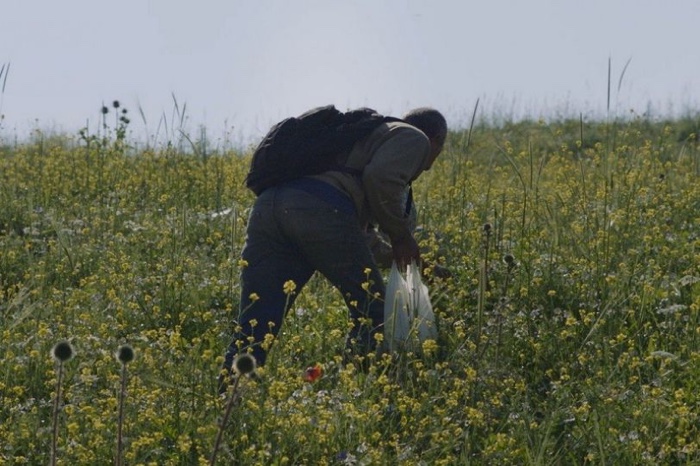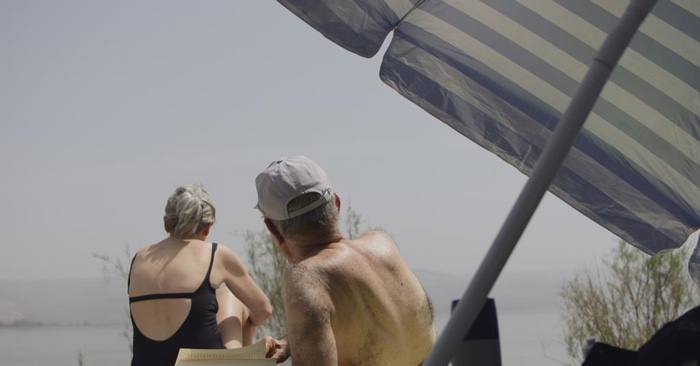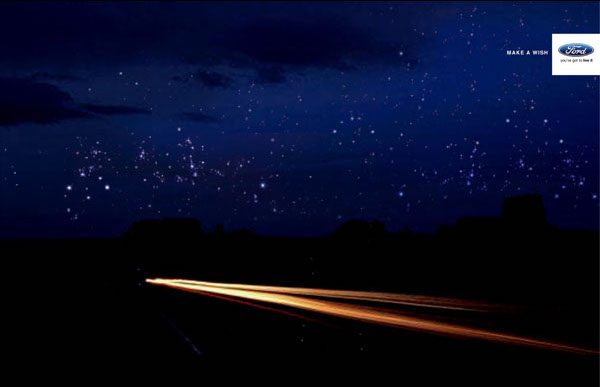Some of the most devious tactics deployed by settler colonialism consists in alienating local communities from their histories, land and traditions.
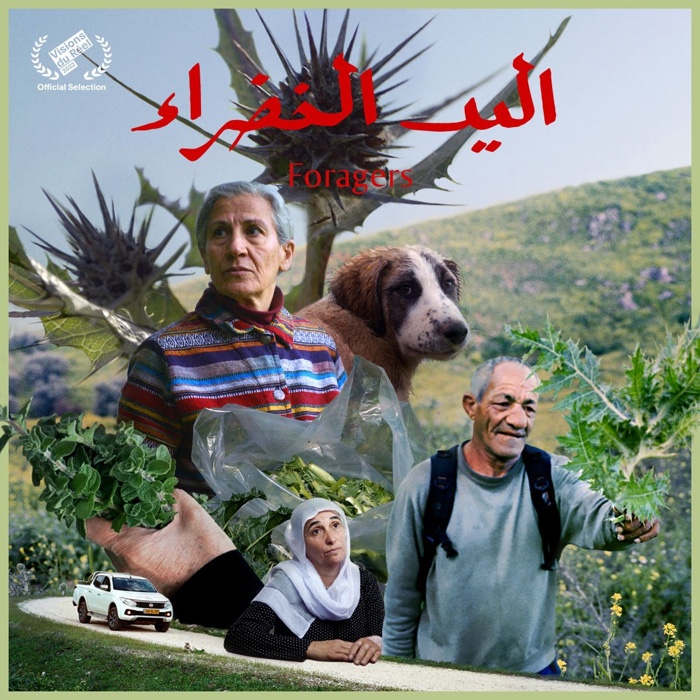
Jumana Manna, Foragers, 2022
FORAGERS / ???? ??????? / Trailer from jumana manna on Vimeo
Jumana Manna‘s film Foragers (which i saw recently at the Fondazione Rebaudengo in Turin) weaves together fiction, documentary and archival footage to expose how Israel is using environmental laws to further enforce its politics of dispossession.
Shot in the Golan Heights, the Galilee and Jerusalem, Foragers follows Arabs who wander fields searching for fresh za’atar and ‘aakoub, two edible wild plants that play an important role in Palestinian culinary, medicinal and cultural traditions. ‘akkoub (gundelia or tumble thistle) is a relative of sunflower and tastes a bit like artichoke. za’atar is a wild thyme that grows primarily on the hills of the Eastern Mediterranean.
Unfortunately, the Israeli Nature and Parks Authority has classified za’atar and ‘akkoub as “endangered” and criminalised the foraging for these basic staples of Arab cuisine. Any Palestinian caught by the nature patrollers gathering the wild plants risks heavy fines, trials and prison sentences.
The restrictions Israeli authorities impose under the guise of conservation efforts may have some scientific basis. The response, however, is only punitive… unless you are Israeli. In the film, a plantation manager explains how he grows ‘aakoub that he then sells to Palestinians. Cultivating ‘akkoub requires the sort of intensive resources that only larger farms or kibbutz communities have. The man also reveals that one of the main reasons why ‘aakoub and za’atar are banned is “because Arabs like them very much.”
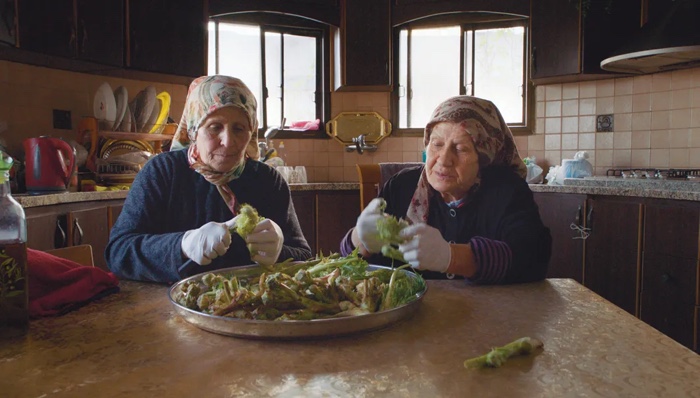
Jumana Manna, Foragers (film still), 2022
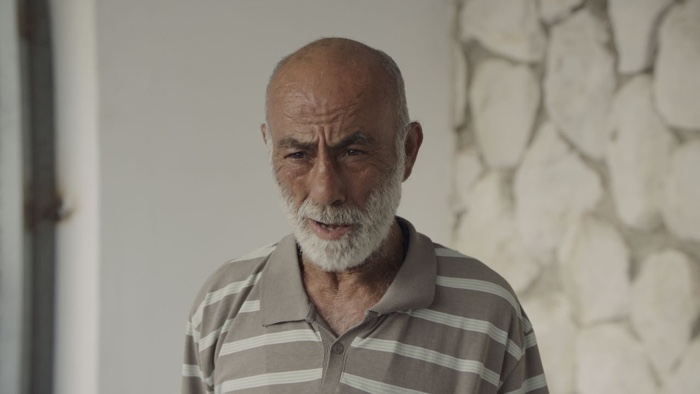
Jumana Manna, Foragers (film still), 2022
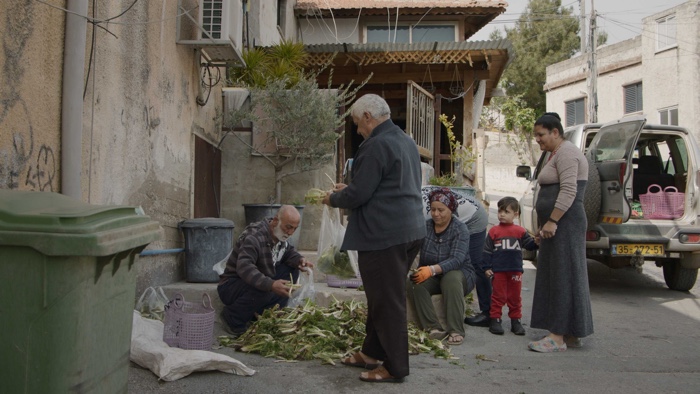
Jumana Manna, Foragers (film still), 2022
And indeed, the legislation that protects the plants is seen as an ecological excuse for more persecution. In the film, Palestinians explain that if you cut the plant instead of pulling it with its roots, it will grow again. They have done just that for generations and that is how they have always kept za’atar and ‘akkoub on their land.
The top-down violence of the environmental laws participate in the establishment of an Israeli nationalised landscape that expands at the expense of Palestinian land.
The conservation laws also constitute a case of what environmental historian Guillaume Blanc calls green colonialism. In Palestine and elsewhere in the world, the appropriation of nature in the name of environmental conservation often masks colonialist agendas as well as the arrogance of the Westerners who not only exclude local populations from decision-making but also believe that their scientific expertise trumps the knowledge of the people who have taken care of a land for generations.
Since the early 20th century, Israeli agricultural policies have drastically reduced Palestine’s crop production, by partitioning fertile land, by making it increasingly difficult to access agricultural soil, by monopolising water resources, by introducing non-native species that wreak havoc on soil and natural resources or by illegally confiscating land. In this context of ecological and economic precarity, foraging becomes also a means of survival, of achieving food sovereignty under occupation.
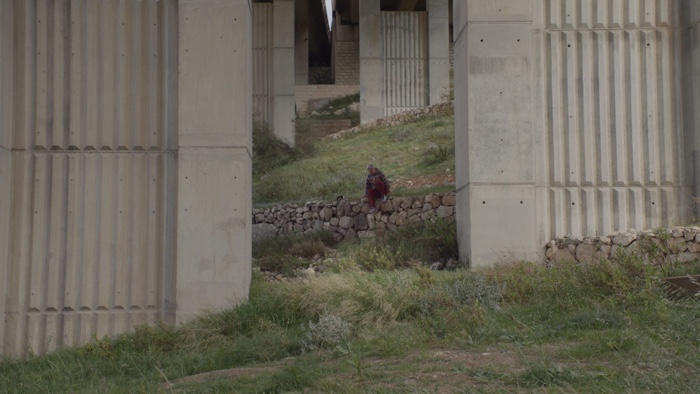
Jumana Manna, Foragers (film still), 2022
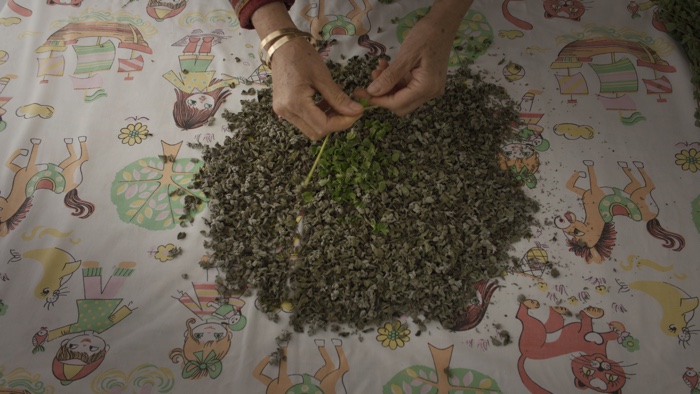
Jumana Manna, Foragers (film still), 2022
Foragers raises awareness about how conservation is being used to greenwash occupation but it is also a film about resilience. Following za’atar and ‘aakoub from the wild to the kitchen and to courtroom prosecutions, the work captures the delight of walking in the mountains and hills in springtime, of being able to recognise the plants and cooking them, of defending the right to one’s connection with the land and what grows on it. There’s some tragicomedy in the film as well, especially when it shows the petty fervour with which Israel hunts down those who forage on expropriated land that historically belongs to them, or the “green patrollers” running behind elderly Palestinians who carry a plastic bag filled with wild herbs.
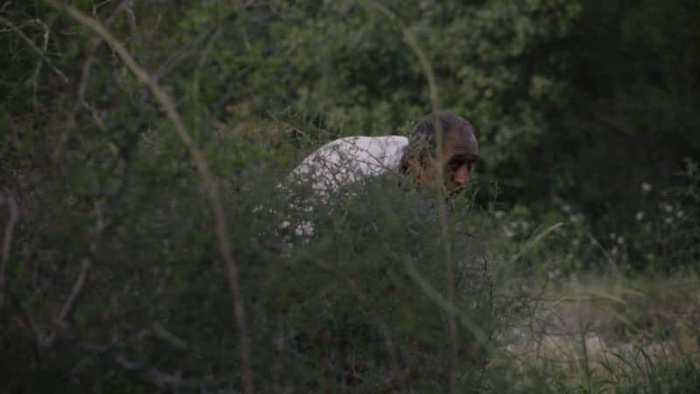
Jumana Manna, Foragers (film still), 2022
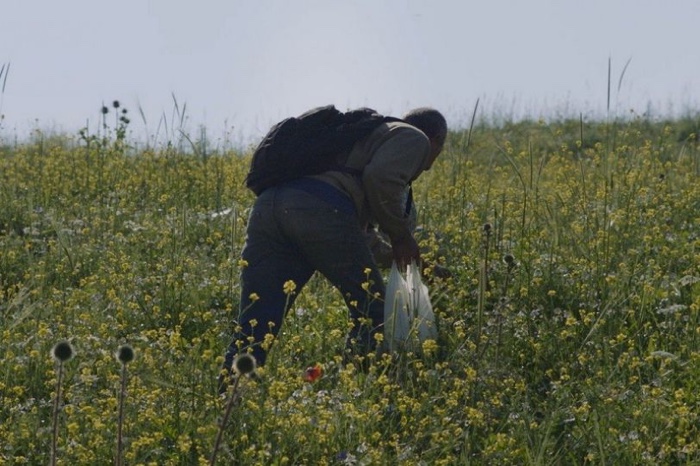
Jumana Manna, Foragers (film still), 2022
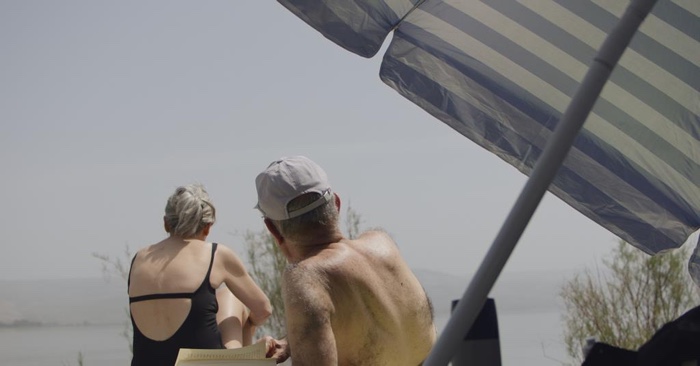
Jumana Manna, Foragers (film still), 2022
Previously: Foto/Industria. The political, technological and cultural dimensions of food, Nation Estate, a “vertical solution to Palestinian statehood”, The Funambulist: Forest Struggles, Book review: Forensic Architecture. Violence at the Threshold of Detectability, The Funambulist Nº10: Architecture & Colonialism, etc.
Source











